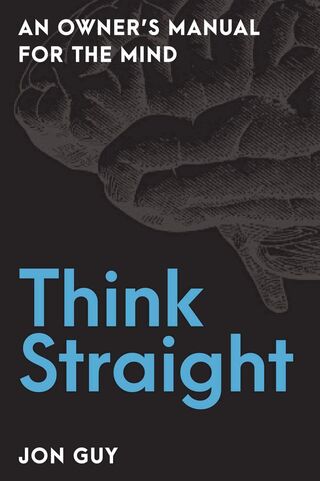Cognition
Thinking Well Changes Everything
Critical thinking expert Jon Guy says clear cognition is a life-and-death issue.
Posted August 29, 2022 Reviewed by Davia Sills
Key points
- Poor thinking skills are as bad now as ever in history.
- The human brain is both the key to our progress and an impediment to it.
- It is crucial we learn how the brain conspires to feed us inaccurate models of reality.
Everyone thinks, of course. The challenge is to think well. It’s not natural for us to spot every lie and dodge most delusions. Modern life is complex and hyper-social. It requires skill and conscious effort to avoid being fooled because the human brain is a complex contradiction. It evolved to make shortcuts, offer interpretations of reality, and routinely deceive its host, all in the cause of immediate survival within prehistoric environments.
Therefore, to live wiser, safer, and more efficient lives today, it is necessary for us to become active and attentive critical thinkers. This is the key message from Jon Guy, author of the new book Think Straight: An owner’s manual for the mind. He shares his thoughts here about how important this issue is and offers some tips for improving your thinking today.
How bad is the problem of poor thinking skills and irrational beliefs today?
The problem is as bad now as it ever has been throughout history. However, charlatans, con artists, conspiracy theorists, and snake oil salespeople now have the convenience of the internet to amplify their messages, and many of them use tactics that take advantage of some of our basic instincts and cognitions. So, at least in my view, the problem is one of scale. When we think about global issues which impact the lives and livelihoods of billions of people—such as climate change, vaccine safety, water fluoridation, or stem cell research and development—it becomes clear that sloppy thinking and irrational beliefs are literally matters of life and death on a massive scale.

What are your general thoughts about the human brain?
The human brain is one of the most fascinating things I’ve ever taken an interest in studying. Incredibly complex and sophisticated in many aspects, yet incredibly simple and elegant in others. I think the human brain is an absolute marvel to the powers of natural selection. The fact that it’s both the key to our progress and survival, as well as an impediment to achieving that very progress and survival, means we definitely need to put far more effort into teaching people how to use it.
Every author has a goal or dream that inspires them to write. What compelled you to write your book Think Straight?
I think that scientific literacy comes with a concomitant responsibility to educate others, and I wanted to, hopefully, make the world a little more rational by teaching people how to use their brains effectively.
What happened to you when you decided to care more about the quality of your thinking processes?
Everything changes when you adopt a worldview that embraces critical thinking. One of the most noticeable changes for me was how liberating it feels to experience reality on its own terms. I’ve also found that I can think more deeply about everyday issues in a way that directly affects the outcomes of my decisions. I’m more willing to listen to opposing points of view, too.
What are a couple of the most common ways people allow their thinking to go astray?
As the late Richard Feynman famously said: “The first principle is that you must not fool yourself—and you are the easiest person to fool.” Unfortunately, most of us have never been taught basic critical thinking skills. We’re unaware of the many biases that impact our decisions, we don’t understand the rudiments of logical reasoning, we’re never taught about the myriad of cognitive shortcomings that plague our minds, and without critical thinking skills, we’re massively unequipped to break free from those cognitive bonds.
What are three critical thinking priorities everyone should be utilizing while navigating the crazy waters of modern life?
- Learn how to tell the difference between a reliable source and an unreliable source.
- Learn as much as you can about how the world can take advantage of the uncritical mind.
- Learn about how your brain conspires to feed you an inaccurate model of reality.

What should we be teaching our children about critical thinking?
Well, first and foremost, we should be teaching our children critical thinking skills and putting more effort into incorporating critical thinking into the educational curricula. From there, children should be taught that critical thinking is fun, enlightening, stimulates their brains, promotes their mental well-being, and significantly increases the quality of their lives and the world they live in.
What would you say to someone who believes it’s hopeless, that most people will always be little better than zombies, prisoners of delusions and irrational beliefs?
The evidence is against this position, as we know that people are capable of and often do change their minds. The mind is more malleable among children, so I think if a concerted effort is made to begin introducing critical thinking in grade school and continue with critical thinking instruction throughout higher education, then we stand a good chance of creating a new zeitgeist in which rational thought is the prevailing norm. Uncritical thinking is a problem with education, not an insoluble condition of the human mind.




